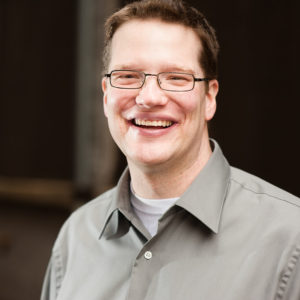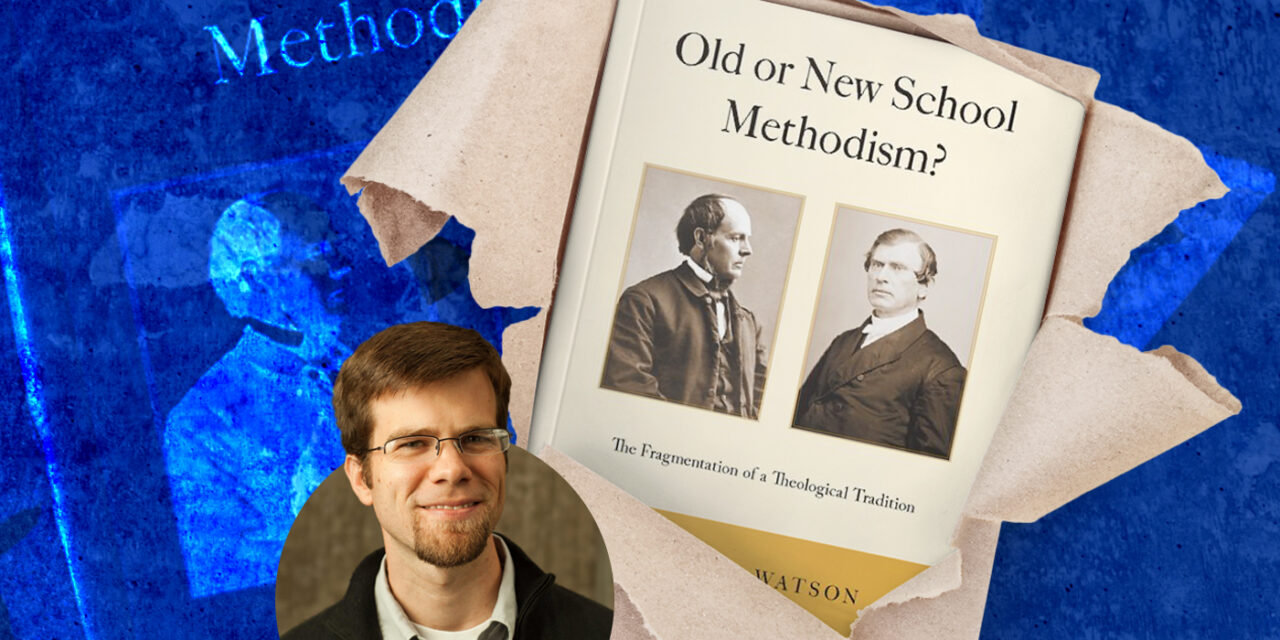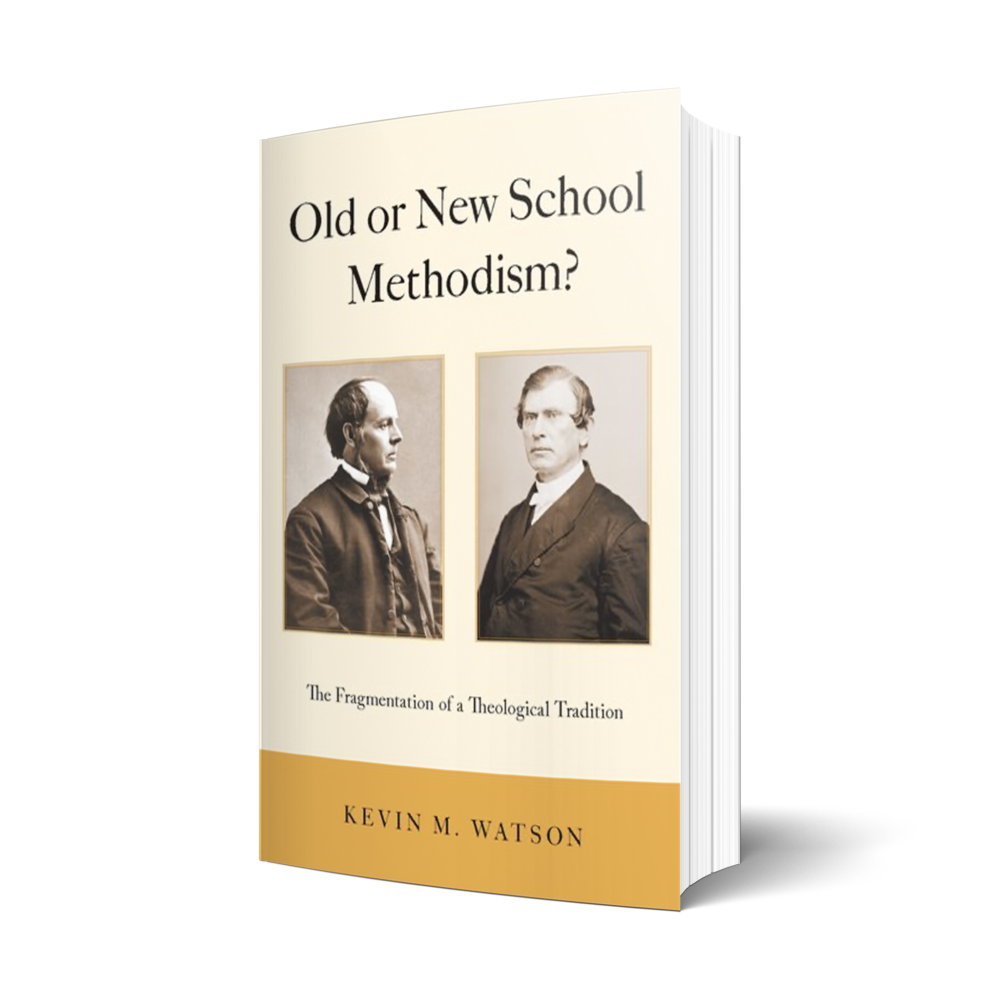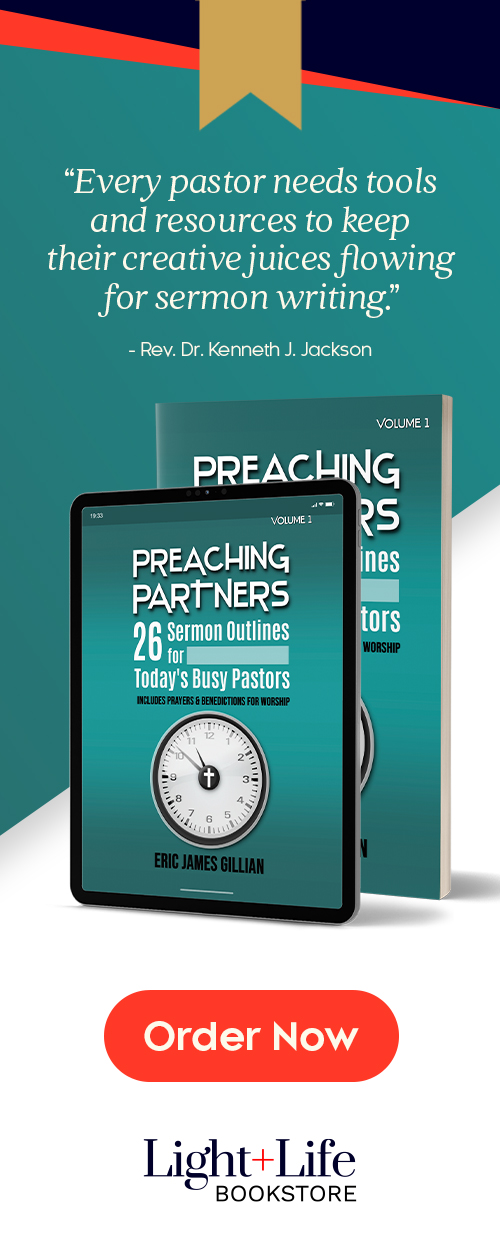A Light+Life Podcast
Old or New School Methodism with guest Dr. Watson
Hosted by Brett Heintzman

Jeff Finley
Light + Life Executive Editor
Jeff Finley is this magazine’s executive editor. He joined the Light+Life team in 2011 after a dozen years of reporting and editing for Sun-Times Media. He is a member of John Wesley Free Methodist Church where his wife, Jen, serves as the lead pastor.
by Jeff Finley
Pastor, professor and historian Kevin M. Watson, Ph.D., and Light + Life’s Brett Heintzman ponder this question in a new episode of “The Light + Life Podcast.” Watson recently received the Marston Memorial Historical Center’s inaugural Bishop Leslie R. Marston Book Prize for “Old or New School Methodism?: The Fragmentation of a Theological Tradition” (Oxford University Press).
The Committee on Free Methodist History and Archives judged Watson’s book “to be the most significant publication over the preceding 12 to 24 months in terms of the contribution it makes to understand Free Methodist origins, history, and mission.”
What does “Old or New School Methodism” mean?
“The phrase comes from an essay that B.T. Roberts wrote called ‘New School Methodism,’ and in it, he is critiquing what he sees as drift or changes in American Methodism from its Wesleyan origins,” Watson said. “As he looks back to John Wesley’s own thinking and writing, he sees a clear articulation of both a set of key beliefs and a set of key practices.”
Watson said that during the 1850s, Roberts examined the Methodist Episcopal Church’s Genesee Conference in upstate New York and found it to be “increasingly compromising on those founding commitments” and “a form of worldliness; it’s more pursuing the world and not as much pursuing the pure gospel and real commitment to the gospel.”
He added that Roberts came to this conclusion at “a particularly volatile moment” and published his essay in two parts shortly before the Genesee Annual Conference of 1857.
“It was very strongly written, very strongly worded. Some people would say it was harsh, but in that context, those kinds of occasional pieces of writing on all sides didn’t pull punches,” Watson said. “The writing was strong, sharp and trying to win the argument.”
The essay was not well-received by many of Roberts’ Methodist colleagues.
“Folks in the Genesee Conference were upset by it,” Watson said. “It wasn’t just that he named their agenda. It was that he named that it was in opposition to the teaching of the founder of Methodism — that it was actually a departure.”
_
“He wasn’t even just accused of being a bad Methodist. He was accused of being unchristian.”
_
At that time, the annual conference included approval of the character of every Methodist pastor.
“When Roberts’ name was read, somebody raised an objection, and basically the entire 1857 annual conference became a trial of B.T. Roberts,” Watson said. “Roberts was brought up on charges of unchristian and immoral conduct. … He wasn’t even just accused of being a bad Methodist. He was accused of being unchristian.”
After being found guilty, Roberts appealed to the general conference, and he was brought up on charges and found guilty again the following year.
“The second trial, I think, is particularly farcical,” Watson said. “The Methodist Episcopal Church eventually apologizes for the way Roberts was treated and acknowledges that they were wrong in that moment.”
Doctrinal Drift
Methodists had some divisions despite “a clear family resemblance” prior to Roberts’ trial, Watson said, “but at the moment of the Free Methodist Church founding, you start to actually see a fragmentation — a fork-in-the-road parting of ways where we’re actually going in a different direction and pursuing a different theological understanding than we were before.”
He said changes in Methodism were “the advent of a new tradition, and that’s not the Free Methodist Church. Free Methodism is founded on trying to go back to the origins.”
Roberts’ doctrinal concerns included that Methodists were “giving up on this kind of radical and countercultural pursuit of entire sanctification that seems too extreme to folks increasingly in places of power and comfort through their own affluence.” (Watson examines this distinctively Wesleyan doctrine more closely in his newest book, “Perfect Love: Recovering Entire Sanctification — The Lost Power of the Methodist Movement.”)
Watson said that along with continuing Methodism’s emphasis on “entire sanctification or radical holiness,” Roberts also emphasized “the requirement of class meeting participation for the church.” Early Methodism included “a commitment to gather together in small group formation for the sake of this disciplined pursuit of growth and holiness, so Methodists had class meetings, which were groups of seven to twelve people that all Methodists were expected to participate in. If you didn’t participate regularly, you would be removed from membership.”
At its beginnings, the Methodist movement required significant commitment along with a lifestyle that reflected beliefs.
“Basically, Methodism had no space conceptually or in practice for nominal Christianity,” Watson said. “If you were Christian in name only but not in your behavior or your living, then you would be removed.”
Simpson: Status and Significance
“Old or New School Methodism?” contrasts Roberts with Methodist Bishop Matthew Simpson who presided over the Genesee Annual Conference.
“I’ll just be honest that I find B.T. Roberts to be a more sympathetic figure,” said Watson, who noted that Simpson led “at this really unique moment in time” during which “Methodism becomes self-aware of its own size and its own significance in the United States.” This was a big change from the Methodist Episcopal Church’s founding in 1784 when Methodists “were a ragtag group of nobodies. Nobody in the culture knew who we were. Nobody cared. There were hardly any of us.”
Methodism grew rapidly among poor people. The Methodist Episcopal Church (forerunner to today’s United Methodist Church) had become the largest U.S. Protestant denomination by the time Simpson became a bishop. According to Watson, Simpson’s viewpoint became: “We don’t have the kind of institutions that powerful people would want to be a part of. We don’t have the kind of institutions that rich people would want to attend themselves, and so we need to build nicer, newer, better churches.”
Simpson realized that Methodists were “the biggest voting constituency there is” and befriended politicians (including Abraham Lincoln) with the hope that Methodists would be rewarded with jobs in the federal government.
Relevance for Today?
The challenges and temptations of Methodists in the mid-1800s may seem familiar to modern Christians who would like to achieve status and significance within the broader U.S. culture.
“One of the things that I see as desperately needed right now by the church is cultural differentiation by Christians,” Watson said. “Christians need to be differentiated from their cultural moment, because I think that we are desperate for cultural approval.”
He added that some Christian leaders seem to believe there is “an inherent wisdom in the cultural moment, and that’s difficult for me to accept as a historian, because it’s just so easy to look back in history and say, ‘Well, here’s a point in time where everybody thought this is true, and nobody thinks that’s true anymore.’”
Watson said that happened in the past with slavery when many people (unlike Roberts and other early Free Methodists) “weren’t outraged by the fact that Methodist laity, Methodist clergy and then Methodist bishops owned other people and held them in bondage against their own will.”
Instead of diving into the cultural moment and baptizing our culture’s current views, Watson said, a modern Christian should be “drinking deeply from the Christian tradition and immersing yourself in the Scriptures so that you have been formed in a countercultural way. … There’s a kind of rejection by the world that comes when you are clothed in the righteousness of Christ and claim that Jesus is Lord and not Caesar.”
Watson said that today’s Methodists should “unplug the ancient wells because there’s still living water in them. Old school Methodism is worth returning to because it is where our tradition has been at its very best. When we’ve grown, when we’ve been a Spirit-fueled movement, we’ve done these basic things.”

Jeff Finley
Light + Life Executive Editor
Jeff Finley is this magazine’s executive editor. He joined the Light+Life team in 2011 after a dozen years of reporting and editing for Sun-Times Media. He is a member of John Wesley Free Methodist Church where his wife, Jen, serves as the lead pastor.










